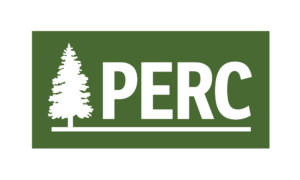
Whether focused on public or private lands, the goal of this special issue is to explore new frontiers in land management. The contributors show that innovative arrangements of property rights and markets can reduce acrimony between groups with differing views and can help improve environmental quality at the same time.
Specific to public lands, TERRY ANDERSON points out that “politics is what federal resource management is all about.” But this mismanagement is not limited to the federal government, writes guest columnist LEONARD GILLRO Y of the Reason Foundation, who explores how the private sector can rescue state parks headed for closure.
JONATHAN FAHEY, with Forbes, picks up on Anderson’s point in “Moving the Wind” by illuminating the politics surrounding the creation of transmission lines for renewable energy. And P.J. HILL and SHAWN REGAN suggest that economic planners touting top-down solutions to save the plains would “do the Great Plains a favor by getting out of the way.”
For private lands, the question is one of innovation: Can clearly defined property rights reduce transaction costs and stimulate new markets for “ecosystem services?” As Duke law professor JAMES SALZMAN suggests, contracting for environmental amenities or services has the potential to decrease the conflict surrounding private land management but questions of design and implementation must first be answered.
Jeff Laszlo, owner of Granger Ranches, is answering these very questions. As HOLLY FRETWELL writes in “The Accidental Environmentalist,” Laszlo’s ranch exemplifies how one can increase profit by conserving environmental amenities. And REED WATSON shows how Colorado’s Ranching for Wildlife program uses financial incentives to encourage wildlife stewardship and quality public hunting experiences on private land—a step in the right direction when compared to Montana’s block management system.
This issue was inspired by a PERC workshop on “New Frontiers in Western Land Institutions” and was made possible by a generous grant from the M.J. Murdock Charitable Trust. And special thanks to Trey Ratcliff for the cover image, The Morning Steam Through the Forest in Yellowstone, you can see more of his work at www. StuckInCustoms.com.


